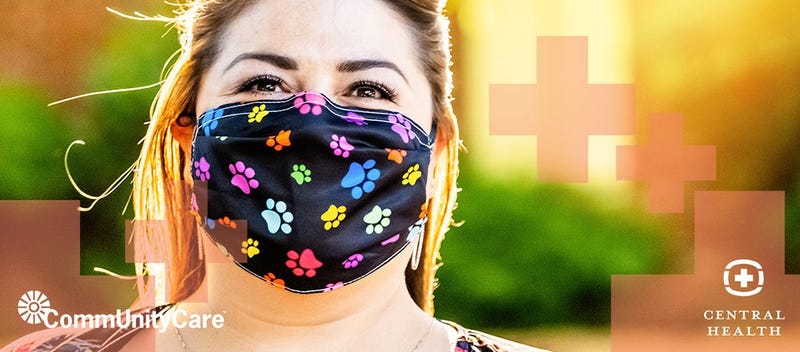
COVID-19 Stage 5 Risk-Based Guidelines
Everyone needs to do all they can to reduce their contact with people outside their homes.
COVID-19 Vaccines
The much-awaited COVID-19 vaccine has arrived in Austin. To ensure the community will have access to our healthcare systems, initial doses have been allocated to health workers followed by essential workers. As the vaccine availability expands, more people who are more likely to develop disease, like older adults with underlying conditions are being included.
The first 13,650 vials of the Pfizer/BioNTech COVID-19 vaccine arrived Dec. 14, 2020 at UT Health Austin to administer to frontline healthcare workers.
The week of Dec. 22nd, an additional 36,625 doses arrived to vaccinate healthcare workers and residents of long-term care facilities.
The next phase will prioritize people who are at the greatest risk of severe disease or death from COVID-19 – people over 65 years of age and those with medical conditions that put them at greater risk for severe disease and death.
More than 300 pharmacies, doctors’ offices, hospital groups, and other providers have signed up to provide COVID-19 vaccines in Austin-Travis County.
As vaccine availability increases in 2021, people will be able to get vaccinated at doctor’s offices, pharmacies, hospitals and other “usual” sites. You should contact your regular provider of vaccines to see whether they will be a provider of the COVID-19 vaccine.
The Centers for Disease Control and Prevention (CDC) recommends that the vaccine be offered to people regardless of whether they have a history of COVID-19 infection.
While the COVID-19 vaccine may cause side effects such as fatigue, headache, fever, chills, nausea, muscle pain, and joint pain, these side effects show that vaccine is working.
The vaccine is administered in two doses that must be spaced two to three weeks apart.
Vaccine recipients should be monitored for at least 15 minutes for a more serious allergic reaction. People who have a history of allergic reactions should be monitored for 30 minutes.
It is not yet clear from the vaccine trials whether individuals who receive the vaccine can still transmit COVID-19 to others. It is therefore very important that even those vaccinated take the same precautions as before to ensure that they do not inadvertently spread the virus as a carrier.
This vaccine has gone through extensive testing before it was authorized for distribution by the Federal Drug Administration (FDA) and it is about 94% effective. It’s going to be an extremely effective defense against the virus, but we still have to keep wearing masks, washing hands, and avoiding crowds for a while longer in order to stay healthy and keep others safe.
Communities of color sometimes can be distrustful of vaccines and the medical establishment, which is understandable since inequitable health policies and even dangerous medical experiments have targeted communities of color in the past. We want to ensure our community that the vaccine is safe and effective, and we strongly encourage everyone to get the vaccine as soon as its available to them. It’s the only way we can get back to normal.
Centers for Disease Control and Prevention (CDC) data show Latinos and African Americans are one and a half to two times more likely than Caucasians to become infected with the coronavirus, about four times more likely to become hospitalized, particularly in urban areas with lower incomes, and about three times as likely to die if infected.
For more information: https://www.centralhealth.net/covid-info/
